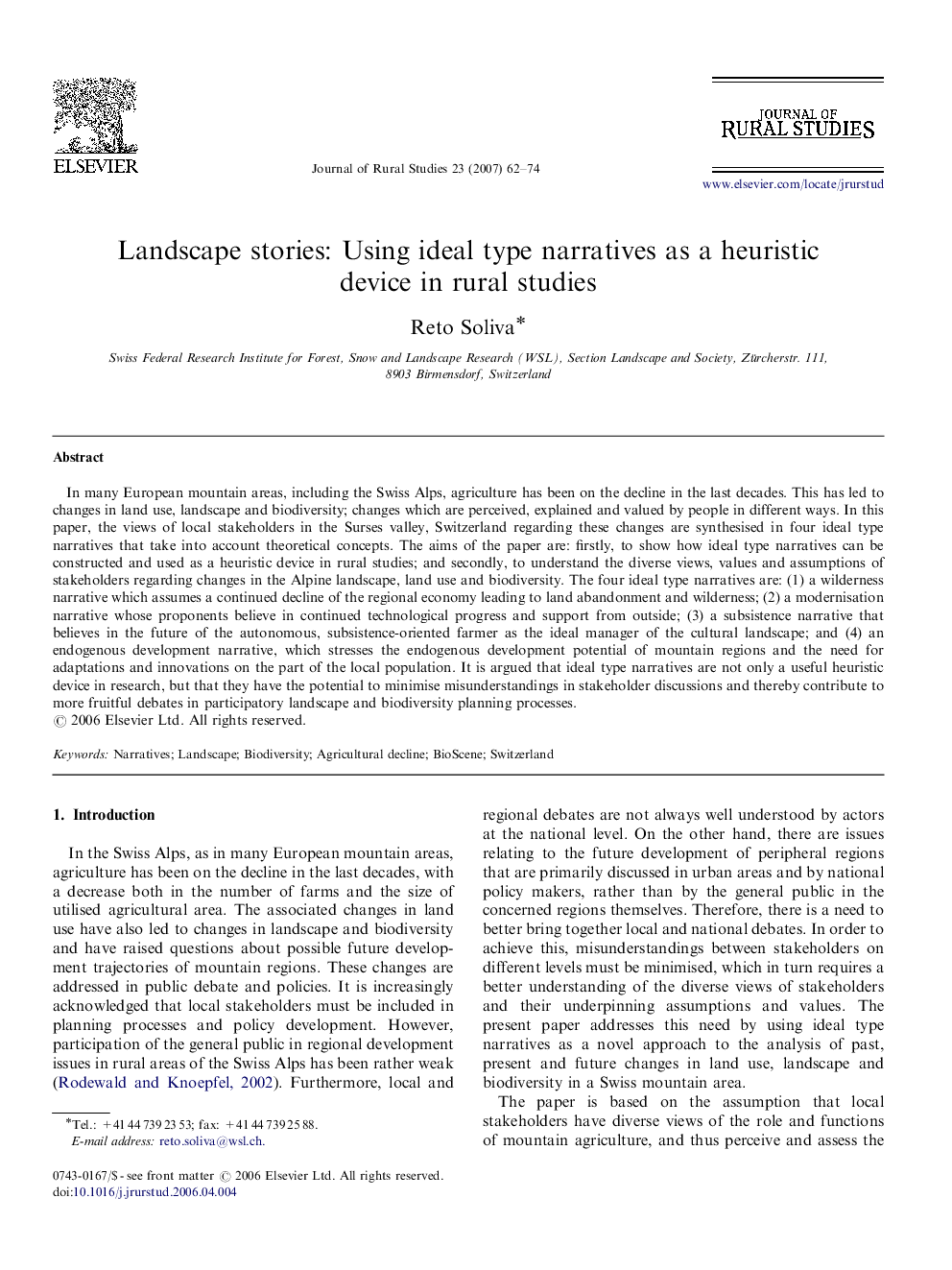| Article ID | Journal | Published Year | Pages | File Type |
|---|---|---|---|---|
| 92828 | Journal of Rural Studies | 2007 | 13 Pages |
In many European mountain areas, including the Swiss Alps, agriculture has been on the decline in the last decades. This has led to changes in land use, landscape and biodiversity; changes which are perceived, explained and valued by people in different ways. In this paper, the views of local stakeholders in the Surses valley, Switzerland regarding these changes are synthesised in four ideal type narratives that take into account theoretical concepts. The aims of the paper are: firstly, to show how ideal type narratives can be constructed and used as a heuristic device in rural studies; and secondly, to understand the diverse views, values and assumptions of stakeholders regarding changes in the Alpine landscape, land use and biodiversity. The four ideal type narratives are: (1) a wilderness narrative which assumes a continued decline of the regional economy leading to land abandonment and wilderness; (2) a modernisation narrative whose proponents believe in continued technological progress and support from outside; (3) a subsistence narrative that believes in the future of the autonomous, subsistence-oriented farmer as the ideal manager of the cultural landscape; and (4) an endogenous development narrative, which stresses the endogenous development potential of mountain regions and the need for adaptations and innovations on the part of the local population. It is argued that ideal type narratives are not only a useful heuristic device in research, but that they have the potential to minimise misunderstandings in stakeholder discussions and thereby contribute to more fruitful debates in participatory landscape and biodiversity planning processes.
